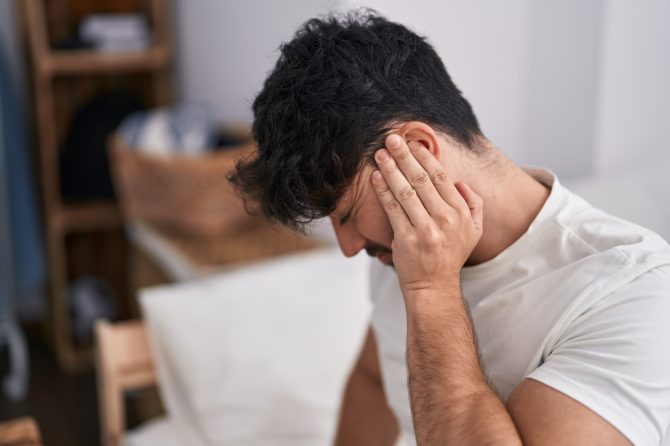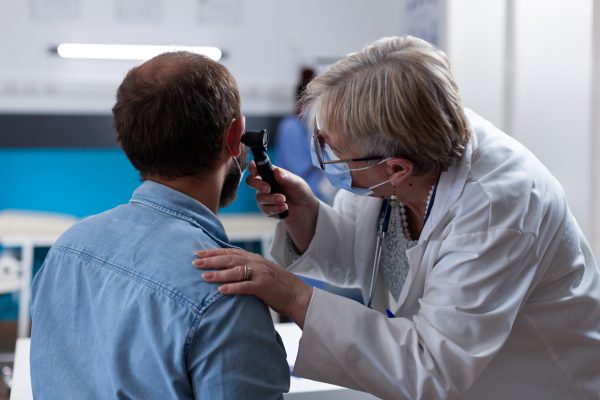
Ear Boils: Knowing Their Causes and Preventive Measures
An ear boil is otherwise known as a furuncle. It is a painful lump that can develop inside the ear canal or around the ear. This is often caused as a result of Staphylococcus infection of the hair follicle and in some rare cases, it can stem from an infection that occurs in the sebaceous gland located in the epidermal layer of the external auditory canal. Boils on the ear are generally pus-filled and are tender to the touch.
Like other lumps in the ear, these can appear as single or multiple bumps appearing anywhere on the ear canal. Infection in the ear canal, apart from being painful, can also lead to a lot of discomfort making it difficult to sleep because of all the pressure on the nerve endings. Even the slightest activity of the jaw, such as chewing and yawning, can make the pain worse.
What Are the Causes of Ear Boils?
There are several reasons behind the growth of a boil behind the ears.
- An infection of a hair follicle caused by bacteria in the ear.
- Neglect of personal hygiene or constant fiddling of the ear.
- Trauma or exposure to irritants in the skin surrounding the ear canal
- Other conditions or diseases like diabetes that can cause infection. High blood sugar can lower immunity, making it more difficult for the body to fight off bacteria.
When Do You Know It’s a Boil and Not a Pimple or Cyst?
Like any other part of the body, the skin of your ears has hair follicles, sweat glands, and other appendages. This means that boils, just like pimples, can occur on this part of your body. While both boils and pimples are painful inflammatory bumps on the skin, furunculosis in ears is caused by invasion into the hair follicles. On the other hand, pimples are mostly due to clogged skin pores.
Going a step further, it is important to know how boils differ from cysts. A cyst forms under the skin and is filled with semisolid material or fluid, while boils are basically a fungal or bacterial infection.
Boils in the ear canal pose risk factors like skin conditions in the form of acne, psoriasis, or eczema. Those with boils can even have a compromised immunity system and diabetes.
What Are Some Possible Treatments to Cure Ear Boils?
You can consider home remedies or professional treatment procedures to combat furuncle boils in the ear.
Home Remedies
- Warm Compress: The application of a warm, wet cloth on the painful area can help relieve pain and promote drainage.
- Tea Tree Oil: It has natural antibacterial and anti-inflammatory properties.
- Aloe Vera: Apply raw aloe vera. It also has cooling and soothing properties that may help lessen irritation and inflammation.
- Over-the-counter Analgesics: To relieve pain, ibuprofen or acetaminophen can be used.
- Mild Antibiotic Ointments: It may help to use an over-the-counter mild antibiotic ointment in case of mild infection.
Medical Treatment
It is advisable to seek medical help if the boils behind the ears worsen or cause fever or hearing loss.
- Oral Antibiotics: For a large or painful boil or multiple boils, a doctor may prescribe antibiotics taken by mouth. These are used to initiate targeted treatment of the cause of infection and help to prevent its spread.
- Incision and Drainage: If the boil does not drain spontaneously, a doctor may have to lance or drain it to relieve pressure.
- Antiseptic Solutions: Antiseptic creams or washes may be advised by doctors to clean the area and further prevent chances of infection.
How to Prevent the Infection?
Ear boils can cause incredible pain and discomfort. But adopting a few means can keep them at bay.
- Practice good ear hygiene: From properly cleaning the outer part of the ear to keeping them dry and free of moisture, good ear hygiene is extremely important. It is better to avoid using cotton swabs as they might push dirt further in.
- Use earplugs when swimming: Using custom earplugs at the time of swimming or showering will keep water away from the ear canal.
- Pay attention to ear canal irritation: Refrain from scratching or poking the ear canal with cotton swabs, sharp objects, fingers, etc.
- Do not share personal items: Washcloths, earbuds, headphones, and similar items should always be kept personal, so do not use anyone else’s objects.
Even after maintaining hygiene, you may get lumps in the ears. Instead of living with this discomfort, consider visiting our clinic and finding the right solution.
Do Ear Boils Cause Hearing Loss?
Although these mainly cause a bit of pain, swelling and potentially drainage, some can cause hearing problems. If an ear boil grows large or is left untreated, it can obstruct the ear canal, interfering with the process of hearing when sound waves can no longer reach the eardrum.
Also, if you are an existing hearing aid user, it may create more complications. The pressure and discomfort of the furuncle boil in ear may make wearing a hearing aid painful, and the swelling can change how well the device fits. It can also affect the quality or amplification of sound from the hearing aid if the boil is blocking the ear canal.
Conclusion
Ear boils are not pleasant; they disturb your routine. If they do not go away even after home remedies, consider visiting our clinic. The Hearing Centre in Singapore is here to help you with the right medication and cure ear boils from their roots. Whether you need professional advice or treatment procedures, it is best to talk to professionals.
Stay connected with our blog posts!


Leave a reply